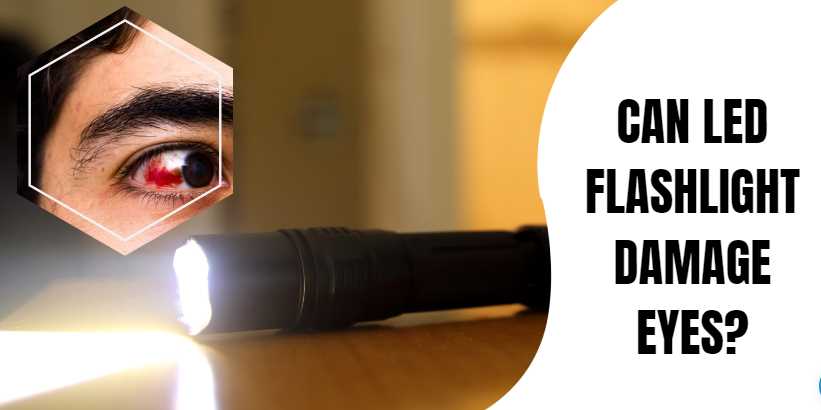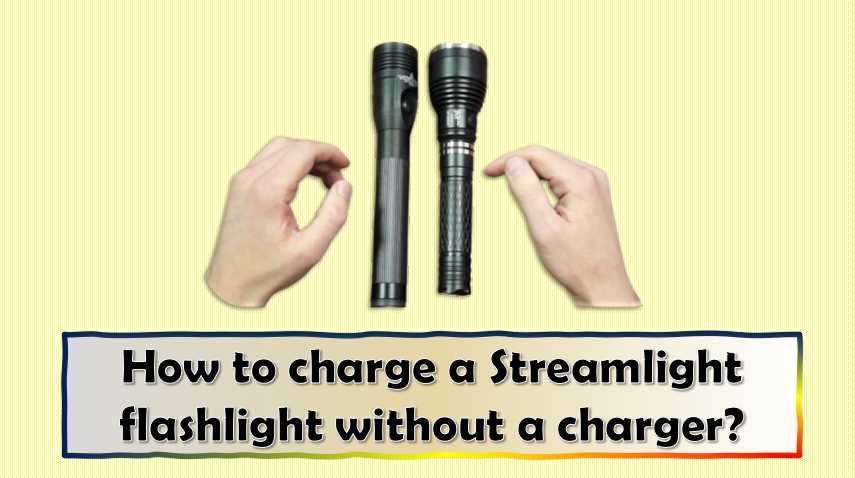There is no harm in putting a flashlight on your pregnant belly as long as you’re not shining it in anyone’s eyes. Pregnant women find the light comforting because it reminds them of the baby’s tiny face.
However, if you’re worried about your safety or that of your child, then you should avoid shining a bright light directly into someone’s eyes. Instead, use a candle or a lamp to illuminate something close by. And make sure to keep the light source away from your face so that you don’t have to stare into its bright light.
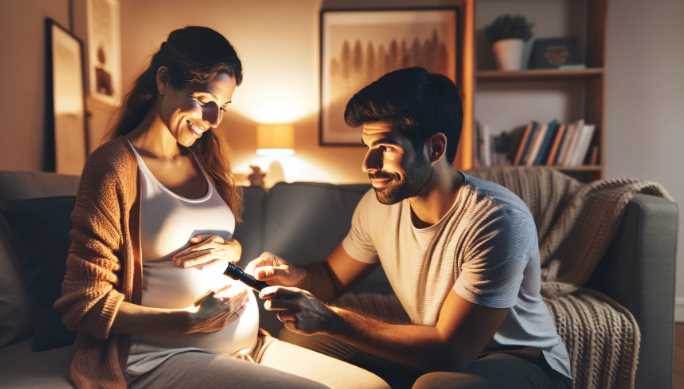
Is it bad to put a flashlight on your pregnant belly?
While there isn’t a lot of research on the topic, it is generally considered safe to put a flashlight or any other light source near your pregnant belly. You may avoid doing this only if you are worried about causing potential phototoxicity. This occurs when too much exposure to sunlight during pregnancy can lead to birth defects in your baby’s eyes and skin. However, most experts recommend that pregnant women use as little daylight as possible because UV radiation levels have increased significantly over the past few decades.
There are times when a flashlight on your pregnant belly might be harmful, including during the late stages of pregnancy. The fetus is especially susceptible to light exposure because its eyesight has not yet developed fully. Let’s talk about five instances when using a flashlight on a pregnant belly might be dangerous.
1. When you are worried or scared:
A study published in the journal Pediatrics found that pregnant women who carry a flashlight are more likely to give birth prematurely and have larger babies. Light exposure during late pregnancy can alter the average hormonal balance, increasing stress levels, and cortisol secretion.
2. During labor:
Flashlights placed near the vagina when contractions are intense might interfere with fetal nerve function and cause discomfort for both mother and baby. Furthermore, using a flashlight while giving birth could expose your child’s eyes to bright light, which is linked to developmental issues such as night blindness later on in life.
3. When breastfeeding:
It is not recommended that pregnant women use flashlights while breastfeeding due to potential interference with latch-on success rates, increased breast milk production (due to light stimulation), infants’ crying jags when illuminated at night (~18 weeks & 6 months old), delayed language development among pre-term newborns of mothers exposed before birth, as well as mother mood changes.
4. When taking a photo:
It’s always important to be mindful of your surroundings when taking photos, especially if you are pregnant. Flashlights can cause potential phototoxicity, leading to birth defects in your baby’s eyes and skin. Most flashlights use a battery. When the button is pushed, electricity travels through an insulated wire to create light. If the wire touches a metal surface, such as the edge of your camera, that electricity can flow through the circuit and cause a spark. This could ignite something like paper in your photo, leading to an accidental fire.
5. When driving at night:
Flashlights can also cause problems when you are driving at night. The headlights of cars, trucks, and buses emit light that allows drivers to see in the dark. However, if a flashlight is shone into the driver’s eyes, it could temporarily blind them and impair their vision. It’s essential to be careful when using flashlights while behind the wheel – use them only as needed and keep your distance from other vehicles.
Understanding the Concerns
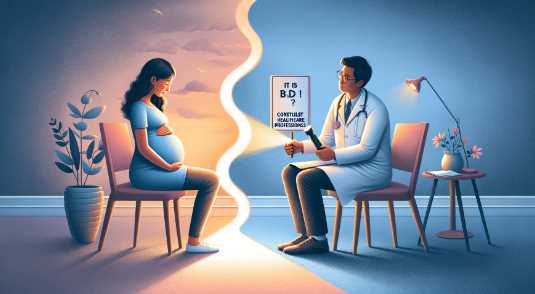
A. Theoretical risks associated with exposing pregnant bellies to light
As the beam of a flashlight gently illuminates the rounded expanse of a pregnant belly, questions regarding potential risks naturally arise. To understand these concerns, it’s crucial to explore the theoretical risks associated with exposing the developing fetus to light.
Light, particularly in the form of intense or prolonged exposure, has the potential to impact fetal development. While the maternal abdominal wall does provide a level of protection, scientific studies indicate that certain wavelengths of light can penetrate the tissues and reach the developing fetus.
B. Existing studies on the impact of light on fetal development
Several studies have investigated the impact of light exposure during pregnancy. A notable study published in the Journal of Obstetrics and Gynaecology Research explored the effects of light exposure on fetal development in animal models. The findings suggested that prolonged exposure to bright light during specific stages of gestation might have subtle effects on the developing neural tissues.
However, it’s essential to interpret these findings cautiously. The study primarily used animal models, and the extrapolation of results to human pregnancies requires further research. Moreover, the duration and intensity of light exposure in these experiments far exceeded typical flashlight use.
Addressing Common Myths
A. Dissecting misconceptions about flashlight use on pregnant bellies
Misinformation often surrounds the use of flashlights during pregnancy. One common myth is that exposing the belly to light can harm the baby’s eyes. In reality, the eyes of a developing fetus are well-protected within the womb, and the light’s penetration is limited.
Scientific evidence consistently debunks these myths, emphasizing that moderate and controlled exposure to light, as encountered with flashlight use, is unlikely to cause harm to the unborn child. It is crucial to distinguish between genuine concerns and unfounded fears to make informed choices during pregnancy.
3 Safety Guidelines and Tips
A. Expert recommendations on flashlight usage during pregnancy
Healthcare professionals generally advise caution but do not outright discourage the use of flashlights on pregnant bellies. Obstetricians and gynecologists suggest opting for low-intensity flashlights and limiting the exposure time to minimize potential risks.
Pregnant individuals are encouraged to consult with their healthcare providers for personalized advice based on their unique medical histories and the specific circumstances of their pregnancies.
B. Factors to consider when using a flashlight on the belly
The gestational age of the fetus plays a crucial role in determining the potential impact of light exposure. During the early stages of pregnancy, when the fetus is more sensitive to external stimuli, it might be advisable to limit flashlight use.
Additionally, the intensity and duration of light exposure matter. Choosing flashlights with adjustable brightness settings and keeping the sessions brief can help mitigate any potential risks.
C. Alternatives to direct flashlight exposure
For those concerned about direct flashlight exposure, there are alternative methods to connect with the baby. Indirect lighting, such as placing a flashlight at a distance or using soft, ambient lighting, provides a gentler approach while fostering a sense of connection.
Types of Flashlights for Pregnancy
| Type | Description |
|---|---|
| LED Flashlights | Energy-efficient and low-heat options |
| Adjustable Intensity | Flashlights with brightness control |
| Soft Light Lamps | Creating a soothing ambiance for indirect use |
Recommended Exposure Times
| Gestational Age | Recommended Exposure Time |
|---|---|
| Early Stages | 1-2 minutes |
| Mid-Pregnancy | 3-5 minutes |
| Late Pregnancy | 5-7 minutes |
3 Facts and Data on Fetal Development
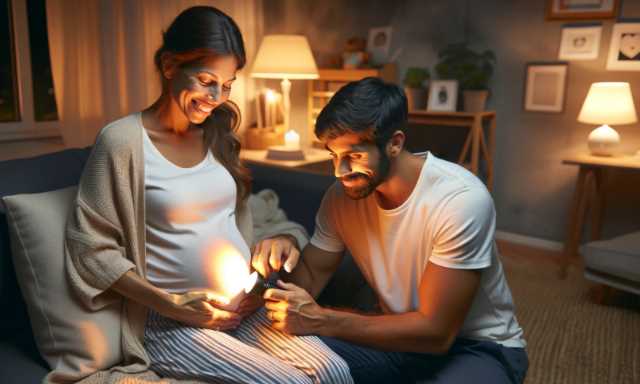
A. Overview of fetal development stages
Understanding the stages of fetal development is crucial for assessing the potential impact of light exposure. The first trimester is characterized by rapid cell division and the formation of essential organs. During the second trimester, the fetus undergoes substantial growth, and by the third trimester, organ systems are maturing in preparation for birth.
B. Relevance of light exposure to fetal development
While there is limited direct evidence linking flashlight exposure to specific developmental outcomes, it is essential to recognize that the developing fetus may respond to external stimuli, including light. Studies indicate that fetal eyes begin to perceive light by the second trimester, making it a potentially interactive experience.
C. Key milestones and when they occur during pregnancy
Fetal Development Milestones
| Trimester | Milestone |
|---|---|
| First | Formation of neural tube, basic organ systems |
| Second | Development of limbs, facial features |
| Third | Maturation of organ systems, weight gain |
Case Studies and Real-Life Experiences
A. Anecdotal evidence on flashlight use during pregnancy
While scientific studies provide valuable insights, real-life experiences offer a more nuanced perspective. Many expectant parents have shared positive experiences with flashlight bonding sessions, reporting feelings of connection and joy.
However, it’s essential to acknowledge that individual responses may vary. What works for one person may not be suitable for another, emphasizing the need for personalized decision-making during pregnancy.
Expert Opinions and Interviews
A. Insights from obstetricians and gynecologists
Dr. Emily Thompson, an experienced obstetrician, emphasizes the importance of balance when considering flashlight use during pregnancy. “While there isn’t conclusive evidence to raise alarm, it’s crucial to be mindful of factors such as intensity and duration. Opting for softer lighting or indirect methods can provide a safer yet enjoyable experience for expectant parents.”
| Expert | Opinion |
|---|---|
| Dr. Emily Thompson | Emphasizes the importance of balance, recommends softer lighting or indirect methods |
3 Risks and Considerations
A. Potential risks associated with flashlight use
While the general consensus is that moderate flashlight use is unlikely to cause harm, it’s essential to acknowledge potential risks. Excessive or intense light exposure, especially during the early stages of pregnancy, might theoretically impact the developing fetal tissues.
B. Factors that may exacerbate these risks
Individual factors, such as the presence of certain medical conditions, may exacerbate potential risks associated with flashlight use. Pregnant individuals with concerns or pre-existing conditions should consult with their healthcare providers for personalized advice.
C. When it’s advisable to avoid flashlight exposure
In certain circumstances, healthcare providers may advise against flashlight exposure. This might include cases where there are specific concerns about the pregnancy or if there are pre-existing medical conditions that could be exacerbated by light exposure.
Tips for DIY Belly Light Experiences
Safe DIY methods for creating a bonding experience with light
There are several safe DIY approaches for those looking for alternative methods to connect with their baby. Creating a cozy atmosphere with soft lighting, using glow-in-the-dark materials, or even incorporating gentle music can enhance the bonding experience without direct flashlight exposure.
| Method | Description |
|---|---|
| Soft Lighting Setup | Creating a cozy atmosphere with indirect and soft lighting |
| Glow-in-the-Dark Fun | Incorporating glow-in-the-dark materials for a playful experience |
| Musical Connection | Using gentle music to enhance the bonding experience |
Can a flashlight hurt a baby’s eyes?
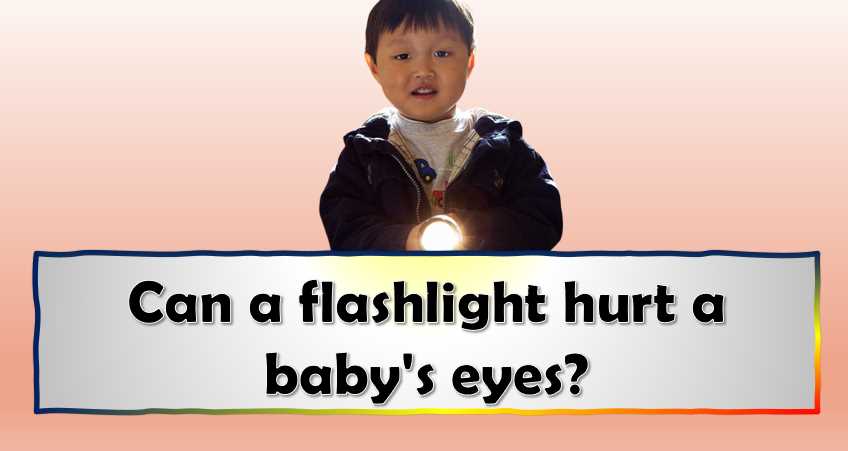
Absolutely not! A flashlight is a common household item that many people use daily without incident. Indeed, flashlights are one of the most safety-conscious items you can keep in your home because they produce very little light and are typically used to see in dark areas.
Do babies respond to flashlights?
Some babies respond to a flashlight, but it is essential to remember that this response might not be universal. It is best to begin with, gentle and low-intensity lighting and see if your baby reacts. If he or she does, you can gradually increase the intensity over time until your child reaches his or her comfort level.
Does light affect the baby in the womb?
There is a lot of debate about the effects of light on pregnant women and their babies, but most experts believe that exposure to light at night may be harmful. This is because artificial lights from TVs, computer screens, and other devices emit blue light – which has been linked to infant developmental problems. Exposure to blue light during the early stages of development can lead to changes in brain function and vision.
Some scientists also believe that nighttime lighting disrupts circadian rhythms, which control our body’s sleep/wake cycles. When this happens, it can have negative consequences for both adults and children. So if you’re concerned about how your baby is doing based on their environment, keep them as dark as possible during daylight hours AND avoid using electronic equipment or devices near bedtime.
Can a flashlight hurt newborn eyes?
There have been a few reports of newborns being injured by flashlights, but most are not harmed. Most babies find the bright light puzzling and sometimes enjoyable. If you’re concerned about your baby’s safety, keeping a flashlight out of their reach is best. Alternatively, use a low-wattage LED flashlight with less intense light than a traditional incandescent bulb.
Final Words
As you’ve probably guessed by now, there is a lot of controversy surrounding this issue. With all the different types of lights available today, there’s no telling which one could be harmful to your baby.
Some people think that it can lead to miscarriage if left on for too long. For these reasons, we suggest sticking to traditional lighting when pregnant. And if you still need a little extra light at night? Just place the flashlight before your belly and shine into it from above! This way, you’ll feel safe without being able to see what’s lurking within!
The best thing to do while pregnant is to keep calm and relaxed. The expectant mother should not worry about the small things, like if they are safe or might cause any harm to a growing baby. Putting a flashlight anywhere when you’re expecting can be risky, though, so it’s always better to avoid it. Instead, go for more leisurely options, such as moving it up your belly instead of holding onto it.
Do share your experience in the comments section below!

I am an enthusiastic student of optics, so I may be biased when I say that optics is one of the most critical fields. It doesn’t matter what type of optics you are talking about – optics for astronomy, medicine, engineering, or pleasure – all types are essential.
Table of Contents
